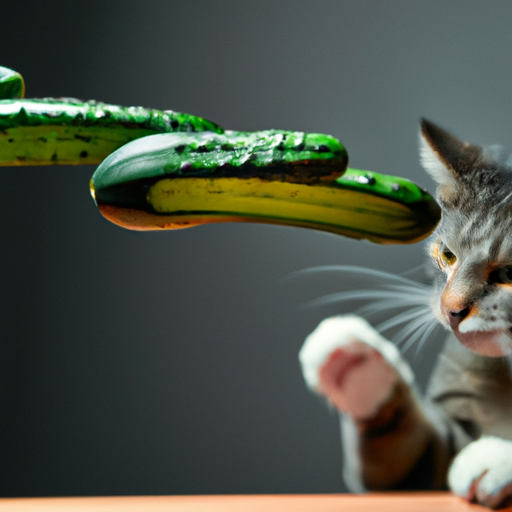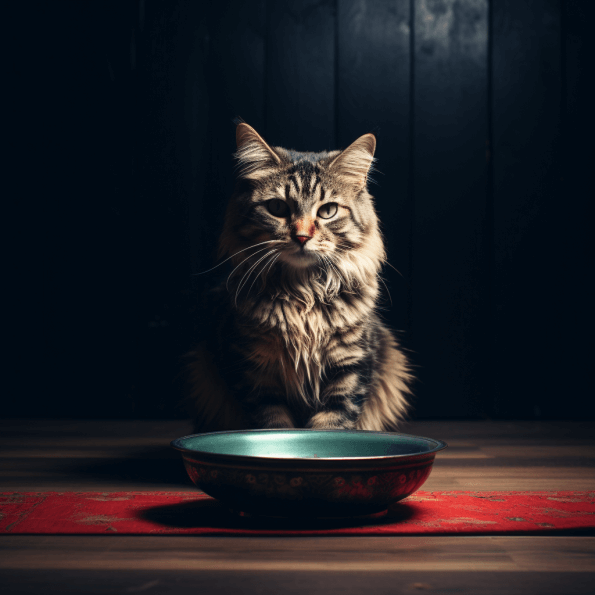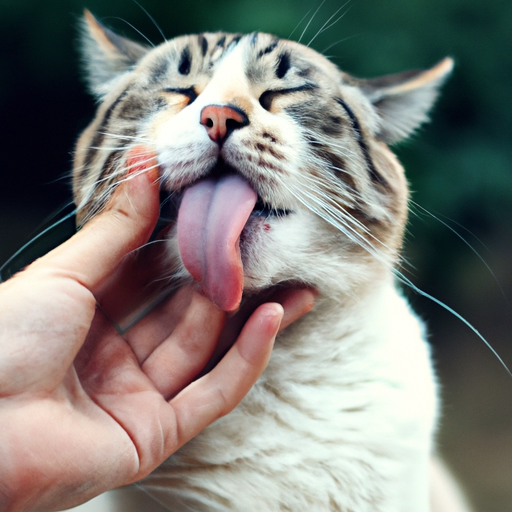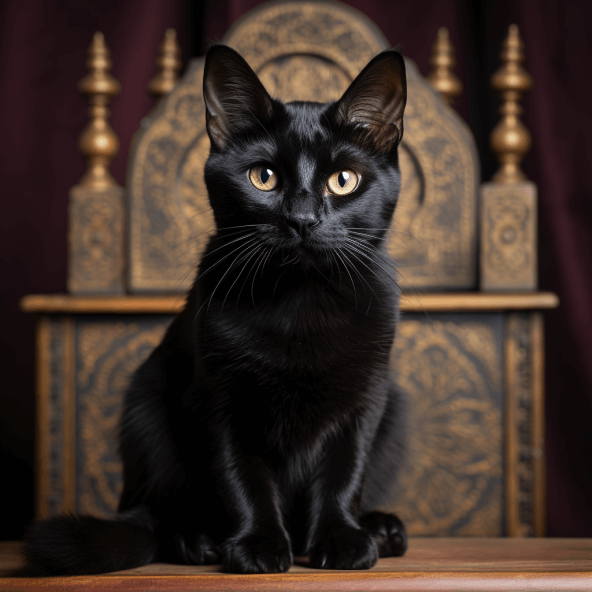Why Are Cats Scared Of Cucumbers?
Have you ever wondered why cats seem to be terrified of cucumbers? It’s a peculiar topic but quite an intriguing one. Throughout this article, you’ll discover the science behind this phenomenon and understand more about your feline friend’s behavior. Get ready to be enlightened.

Why Are Cats Scared Of Cucumbers?
Why are cats scared of cucumbers? It’s a question that has puzzled many since hilarious videos of the feline reaction to the elongated green item started surfacing on the internet. A quick stop at the Evolutionary Response Theory may shed some light on this phenomenon.
Evolutionary Response Theory
Cats and cats alone do not only have a queer physiological response to the sight of cucumbers, but it may be deeply linked to evolutionary stratagem baked into their genes to ensure survival.
Connections between cucumbers and potential threats
You might wonder what a household cat might find threatening about a salad staple. Well, from an evolutionary standpoint, it might not be the cucumber but the potential threat it represents. Cats are natural hunters, and part of their instinct involves being on the lookout for predators.
Predisposed feline fear stimuli
Most cats are predisposed to react to sudden changes in their environment as potential threats. The unexpected presence of an object behind them when they turn around taps into this instinctive fear response.
Role of sudden unexpected presence
Imagine relaxing in your living room, and when you turn around, you find an unknown object just inches away. You’d be startled, right? Now, imagine how a cat might feel. That’s probably how they react to a cucumber. The cucumber hasn’t been perceived as a threat until the cat turns around and suddenly finds it there.
Behavioral Perspective
Behavioral perspective provides insight into why cats might fear cucumbers based on their territorial instinct and personal boundaries.
Felines’ perception of personal space violation
Cats are territorial creatures. When an unexpected item (like a cucumber) invades their personal space, it can trigger a scared reaction.
A cat’s predatory instincts
Cucumbers might trigger a cat’s predatory instincts. Tapping into its wild roots, an unsuspecting cucumber might be mistaken as a snake or predator.
Common Misbeliefs
Of course, several misconceptions circulate about why cats could possibly be scared of cucumbers.
The resemblance of cucumbers with snakes
Many believe that cats see cucumbers as snakes due to their shape and color. This theory, though lacking concrete scientific backing, is a popular explanation.
Cats associating cucumbers with food
Another common myth is that cats associate cucumbers with food and get confused. However, this misconception doesn’t hold up under scrutiny.

Research on Cat and Cucumber Interaction
Let’s delve into what scientific research reveals about this cat-cucumber interaction.
Observational studies
Observational studies prove that cats react more to surprise rather than fear of cucumbers. It just happens that cucumbers provide a good ‘sneaky’ prop due to their shape and color.
Experts’ opinion on viral videos
Experts warn against forcing cats into cucumber confrontations for kicks since it might be causing your cat unnecessary stress and could lead to long-term trauma.
Cats’ Sensorial Perception
A cat’s wide-arrayed sensorial perception plays a critical role in their reaction to cucumbers.
The role of visual perception
Cats, with their sharp visual perception, can misconstrue cucumbers for predators due to the sudden appearance and the elongated shape.
The effect of olfactory senses
One theory speculates that the peculiar smell of cucumbers might trigger an adverse reaction in cats, an under-explored area of study to confirm or refute this.
Involvement of tactile senses
Cats’ tactile senses might react to the feel of a cucumber’s skin, contributing to their fear response. However, this theory is largely untested.
Effects on Cat’s Health and Well-being
Playing pranks on your cat might result in instant laughs for you, but it could lead to potential harm to your pet.
Potential traumas associated with fright
Threat or fright-induced stress can escalate to physiological stress evidenced by elevated heart rate, dilated pupils, and endangered overall well-being.
Long term psychological impacts
Repeated fright can result in chronic stress, leading to behavioral changes and, worst-case scenario, constant fear and nervousness.
Humane Ways of Handling Cats’ Fear
Instead of using surprise tactics that stress your cat, consider these more humane approaches.
Approaches to desensitize your cat’s cucumber fear
Slowly introducing the cucumber, or any novel object, would be a more humane and less distressing way of dealing with this issue.
Creating a safe environment
Ensure your cat has a safe environment where it’s free from startling experiences or unnecessary threats.
Professional Point of View
Animal experts and veterinarians discourage pranks that could potentially harm an animal’s psychological well-being.
Veterinarians’ opinion
Veterinarians advise against any form of unnecessary stress, holding that it can impact a cat’s well-being adversely.
Animal behaviorists’ perspective
Animal behaviorists opine that scary pranks for viral video trends compromise the mental health of animals and should be avoided.
The Ethical Debate
Using animals for entertainment, especially causing them distress, is an ongoing ethical debate.
Controversy over inducing fear in pets for amusement
The cat-cucumber phenomenon has reignited conversations about the ethics of using animals for entertainment.
The role of Social media and virality
Social media’s role in promoting such trends raise questions regarding the impact of virality on animal welfare.
Conclusion
Reflection on cats’ behavior towards cucumbers
We have explored in-depth why cats might behave in a certain way towards cucumbers. From evolutionary aspects, behavioral attributes to sensory perception, a myriad of facets interact, resulting in the displayed behavior.
Final thoughts on inducing fear in feline pets
The bottom line? Cats might not be scared of cucumbers per se. However, their reaction is more of a response to a sudden unexpected item in their territory. And while it might make for an amusing viral video, the possible distress and long-term impact on your feline friend should make you think twice about pranking them for kicks.
In short, it’s always best to respect your pet’s boundaries and think about their well-being before seeking a good laugh at their expense.







